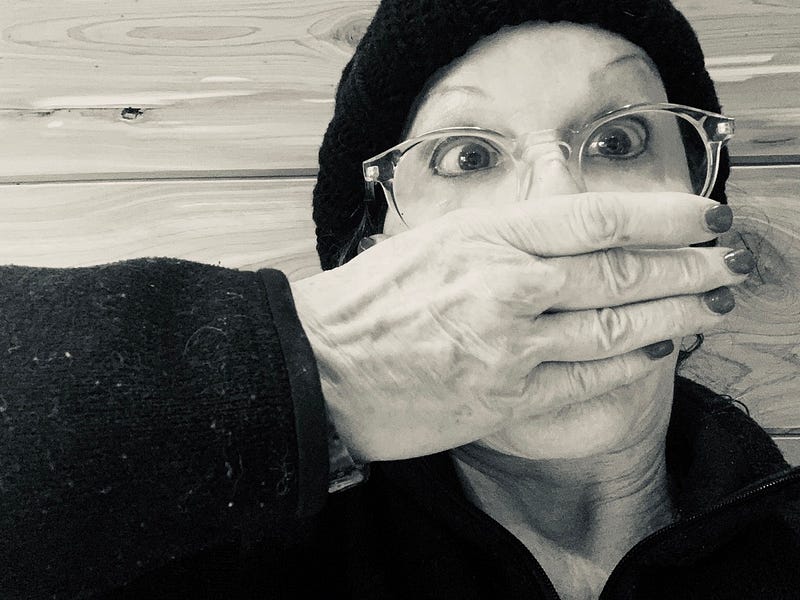Counseling & Therapy for Individuals, Couples, & Families in Little Rock, AR. Find out when therapy is indicated, Becky's … Learn More

From a Therapist: Seven Things You Can Do Now to Get Through the Coronavirus Pandemic.
 LINK to article: https://bit.ly/NoMoreCoronaVirusWorries
LINK to article: https://bit.ly/NoMoreCoronaVirusWorries
This isn’t the end of the world, it’s just the beginning of changing times.
The coronavirus has changed our society and culture in a very short time, and for most of us, priorities have changed. Instead of focusing on divisive issues and how we are different, we all share now a similar problem: Figure out how to stay afloat, sane and illness-free while hunkering down in our homes in social isolation. For all of the unwanted things the coronavirus brings, there still might be something good to come of it … perhaps it’s the reset our culture so desperately needed to take the attention off of differences, while causing us to focus on how we can help one another during an incredibly difficult time and beyond.
Still, most people are experiencing some level of stress as the coronavirus spreads across the USA, which is understandable. People are experiencing reductions or loss of income or jobs, having to downsize or close businesses, kids home from school and home schooling, everyday supplies unavailable, the potentiality of a dangerous and contagious virus and all the weirdness of almost everyone staying home.
Therapists know that too many stressors or changes in a short time in a person’s life often will trigger depression and anxiety symptoms, physical illness, or both, so most of us know there has to be a lot of that going on right now. The most commonly diagnosed mental disorder, once called adjustment disorder, is now called stress response syndrome. It happens when people have difficulty adjusting to changes, and who isn’t going through at least a little of that right now? You might feel hopeless, sad, have anxiety and worry, headaches or stomachaches. Don’t be afraid to speak out if this happens to you, it’s very common and treatable. You might need a therapist to coach you into how to process this national crisis in the healthiest possible way, and if that doesn’t bring you relief, you might reach out to your family physician for medications. There is no shame whatsoever in reaching out for either of these options, or both.
On my end, I’ve put together a list of things you can do now that will help you through the coronavirus pandemic in the healthiest possible way:
1. Educate yourself with truthful and accurate information. Don’t be upsetting yourself over rumors and conjecture about the coronavirus, and don’t buy into those who would minimize concerns for political reasons. Learn what is real and worth being concerned about through reliable medical sources like the CDC and state and national department of health resources.
2. Do what you can to protect yourself from the virus. Wash your hands often, keep your distance from people, don’t touch people or your face. Stay at home as much as you can and stay connected to those you care about through phones, email, video conferencing.
3. Know what resources are available to you. Seek out and pursue what financial and medical resources are out there that may assist you in being able to take care of yourself and your family. Are there government loans that may be forgivable? Will credit, utility, banks, loan companies discount or temporarily eliminate payments?
4. Understand what worry and anxiety is. Worrying and anxiety cannot exist unless a person is focusing on the future. Many people have a tendency to imagine things that could happen that probably will never happen, so if you find yourself obsessing over the virus, or engaging in catastrophic thinking, visualize a big red stop sign to stop the thought, then consciously make yourself think about something else, preferably something that is a resource for you. Resources are things that shift you to a softer mood almost instantly, for me this might be my husband, pets or nature. Understand what you can control and what you cannot, and don’t waste time thinking about things that you can’t change.
5. Breathe. Deep long breaths will signal to your brain to relax. Anxiety and worry cause a person to tense and shallow breathe, and we want the opposite of that. Get yourself still, focus on your breath, notice the air going in and out, and voila, you won’t be able to think about the virus or anything else negative. This is how to bring yourself out of future thinking into the present.
6. Anxiety comes in waves. If you still end up getting anxiety, know that what goes up, will very soon come down, so the uncomfortable feeling is temporary. It might also help to reassure yourself that you are safe.
7. Get medical help if needed. Do not hesitate to call or visit your family doctor or local emergency clinic if you get symptoms of COVID-19. If you don’t have any symptoms and haven’t been exposed to the coronavirus that you know of, but are mentally and emotionally suffering, get therapy. Many therapists are doing phone or online therapy now, and they can help you process things in a healthy way.
There really are things we can all do to lessen negative effects of the pandemic. Be smart and well-informed, make lemonade out of lemons where you can, be positive-minded and focus on good outcomes and ride out these strange and difficult days knowing you are smart, capable, and can figure anything out that may come your way, because you can.
“Doctor Becky” Whetstone has a doctorate in Marriage and Family Therapy and is a licensed LMFT in Texas and Arkansas under her legal name, Becky Whetstone Cheairs. She also is a Licensed Professional Counselor in Arkansas under the same legal name, Becky Whetstone Cheairs. She is in private practice in Little Rock, Arkansas, and does online coaching throughout the USA and world. To reach Doctor Becky visit her web site at www.doctorbecky.com.

From a Therapist: Seven Things You Can Do Now to Get Through the Coronavirus Pandemic.

From a Therapist: Seven Things You Can Do Now to Get Through the Coronavirus Pandemic.
This isn’t the end of the world, it’s just the beginning of changing times.
The coronavirus has changed our society and culture in a very short time, and for most of us, priorities have changed. Instead of focusing on divisive issues and how we are different, we all share now a similar problem: Figure out how to stay afloat, sane and illness-free while hunkering down in our homes in social isolation. For all of the unwanted things the coronavirus brings, there still might be something good to come of it … perhaps it’s the reset our culture so desperately needed to take the attention off of differences, while causing us to focus on how we can help one another during an incredibly difficult time and beyond.
Still, most people are experiencing some level of stress as the coronavirus spreads across the USA, which is understandable. People are experiencing reductions or loss of income or jobs, having to downsize or close businesses, kids home from school and home schooling, everyday supplies unavailable, the potentiality of a dangerous and contagious virus and all the weirdness of almost everyone staying home.
Therapists know that too many stressors or changes in a short time in a person’s life often will trigger depression and anxiety symptoms, physical illness, or both, so most of us know there has to be a lot of that going on right now. The most commonly diagnosed mental disorder, once called adjustment disorder, is now called stress response syndrome. It happens when people have difficulty adjusting to changes, and who isn’t going through at least a little of that right now? You might feel hopeless, sad, have anxiety and worry, headaches or stomachaches. Don’t be afraid to speak out if this happens to you, it’s very common and treatable. You might need a therapist to coach you into how to process this national crisis in the healthiest possible way, and if that doesn’t bring you relief, you might reach out to your family physician for medications. There is no shame whatsoever in reaching out for either of these options, or both.
On my end, I’ve put together a list of things you can do now that will help you through the coronavirus pandemic in the healthiest possible way:
1. Educate yourself with truthful and accurate information. Don’t be upsetting yourself over rumors and conjecture about the coronavirus, and don’t buy into those who would minimize concerns for political reasons. Learn what is real and worth being concerned about through reliable medical sources like the CDC and state and national department of health resources.
2. Do what you can to protect yourself from the virus. Wash your hands often, keep your distance from people, don’t touch people or your face. Stay at home as much as you can and stay connected to those you care about through phones, email, video conferencing.
3. Know what resources are available to you. Seek out and pursue what financial and medical resources are out there that may assist you in being able to take care of yourself and your family. Are there government loans that may be forgivable? Will credit, utility, banks, loan companies discount or temporarily eliminate payments?
4. Understand what worry and anxiety is. Worrying and anxiety cannot exist unless a person is focusing on the future. Many people have a tendency to imagine things that could happen that probably will never happen, so if you find yourself obsessing over the virus, or engaging in catastrophic thinking, visualize a big red stop sign to stop the thought, then consciously make yourself think about something else, preferably something that is a resource for you. Resources are things that shift you to a softer mood almost instantly, for me this might be my husband, pets or nature. Understand what you can control and what you cannot, and don’t waste time thinking about things that you can’t change.
5. Breathe. Deep long breaths will signal to your brain to relax. Anxiety and worry cause a person to tense and shallow breathe, and we want the opposite of that. Get yourself still, focus on your breath, notice the air going in and out, and voila, you won’t be able to think about the virus or anything else negative. This is how to bring yourself out of future thinking into the present.
6. Anxiety comes in waves. If you still end up getting anxiety, know that what goes up, will very soon come down, so the uncomfortable feeling is temporary. It might also help to reassure yourself that you are safe.
7. Get medical help if needed. Do not hesitate to call or visit your family doctor or local emergency clinic if you get symptoms of COVID-19. If you don’t have any symptoms and haven’t been exposed to the coronavirus that you know of, but are mentally and emotionally suffering, get therapy. Many therapists are doing phone or online therapy now, and they can help you process things in a healthy way.
There really are things we can all do to lessen negative effects of the pandemic. Be smart and well-informed, make lemonade out of lemons where you can, be positive-minded and focus on good outcomes and ride out these strange and difficult days knowing you are smart, capable, and can figure anything out that may come your way, because you can.
“Doctor Becky” Whetstone has a doctorate in Marriage and Family Therapy and is a licensed LMFT in Texas and Arkansas under her legal name, Becky Whetstone Cheairs. She also is a Licensed Professional Counselor in Arkansas under the same legal name, Becky Whetstone Cheairs. She is in private practice in Little Rock, Arkansas, and does online coaching throughout the USA and world. To reach Doctor Becky visit her web site at www.doctorbecky.com.

What A Family Therapist Says the Royal Family Must do to Manage the Harry and Meghan Crisis.

What A Family Therapist Says the Royal Family Must do to Manage the Harry and Meghan Crisis.
And Not Doing it Could Cost them the Crown.
Studying history, the British Royal family’s mode of operation has been deliberate and controlling of family with one goal in mind: Maintaining what so many other family members from past generations in other countries could not, control of their crown. They know that too much foolishness, living life blatantly as the entitled bunch they are, or not enough charitable fund-raising and do-good work will eventually wear thin on the British people and lead to pressure of the government to cut the expensive royal habit. Because losing the crown must not happen on her watch, one can imagine that anytime a family member creates a drama that could rock the royal ship, Queen Elizabeth gets jittery.
So the Queen is feeling jitters. Here is the situation in a nutshell: The good about being royal is fame, fortune and rubbing elbows with whoever you choose. On the downside, you are guaranteed little privacy and constant hounding by the sleazy tabloid press, who take pleasure, and will stop at nothing, to reveal your flaws to the world. And what fun they have exposing private conversations or letters and digging for info from your estranged friends or family members. Whether the details are true, kind of true, or completely made up, it doesn’t matter to tabloids, and they publish it all.
If you are born a royal, you are raised, or brainwashed, to endure your role, and to see being royal as a duty and privilege bestowed on your family. But imagine the shock of the experience for those who were not raised that way, who are accustomed to being independent, and then enter a world where you are told to step in line and follow ancient, dysfunctional rules and customs and embrace a lifestyle that says some humans are more highly ranked than others, then suffer the scrutiny of all that being a difficult transition.
With that in mind, Prince Harry and Meghan Markle, also known as the Duke and Duchess of Sussex, have decided to not live life that way, and have been distancing themselves from what must feel like royal shackles for some time. What healthy adult wouldn’t want to do that?
The problem here is not their decision, it is what the royal family will do about their decision, and it will be a time for the royals to show us whether they are growing and evolving into a healthier, more flexible and accepting entity, or planning to stick to the rigid, controlling and punitive ways of the past.
The key players in Britain’s royal family will meet this week to decide how to handle Harry and Meghan’s transition. The deciders are the current and future heirs to the throne, Queen Elizabeth, Prince Charles, Prince William; then of course Prince Harry, and Meghan will be there to clarify their positions, though reports say Meghan will be listening in remotely from Canada where she is staying with their son, Archie.
If this was almost any other family, Harry and Meghan, also known as the Duke and Duchess of Sussex, would be able to step away from the family business to do whatever they want, while still maintaining the family relationships they value. Whether any family member stays on the family payroll after leaving a family business is left to each family to decide.
Just as in a marriage that is on the brink due to change and growth, the British family must now display an ability to be flexible in allowing their family members to be who they are, and to follow the dreams they choose, or risk being seen as the rigid dictators they have shown themselves to be in the past. What they decide could make or break their future.
The royal family has shown their controlling ugliness in the past. The Queen’s uncle, King Edward VIII famously abdicated his throne in 1936 to marry the woman he loved, Wallis Simpson, who was divorced. The retired King was exiled to France and shunned by his family for choosing romantic love over duty. His mother and brother, Queen Elizabeth’s father, King George VI, shut him out of their lives completely. Years later the Queen forbade her sister, Princess Margaret to marry the man she loved, Peter Townsend, because he was divorced and had two children. Had Margaret married Townsend, it was understood she would lose all royal privilege and family support. She is known to have suffered for years over this loss. In numerous cases across history, it is devotion to crown and all of its rules, or risk losing everything.
Now is the time the British royal family must show a more humane, accepting and compassionate side, or they will not, and should not, survive.
The policy of “Do what we say or else,” is antiquated and a recipe for mental and emotional suffering — one main cause of depression and anxiety we know for certain is lack of accepting individuals. The only functional choice in this era is for the family to continue loving, accepting and leaving the door open to Harry and Meghan as family members, and to wish them well in whatever path they choose moving forward. If I was attending the meeting as a family therapist, I would tell them only the extent of their royal roles and duties and the monetary compensation for that should be on the table.
What the family does now will be a bellwether for their future. I hope for everyone involved that they choose love and acceptance.
Becky Whetstone Cheairs, Ph.D. is a licensed Marriage and Family Therapist in Texas and Arkansas, and a Licensed Professional Counselor in Arkansas. She is also a former columnist for the San Antonio Express-News. She works in private practice in Little Rock, Arkansas, and welcomes your feedback. Her web sites are www.doctorbecky.com and www.marriagecrisismanager.com. Contact her at becky@doctorbecky.com.



 Becky Whetstone is an Arkansas native and has a Ph.D. in Marriage and Family Therapy from St. Mary’s University in San Antonio, Texas. She is a Licensed Marriage and Family Therapist (LMFT) in Texas and Arkansas.
Becky Whetstone is an Arkansas native and has a Ph.D. in Marriage and Family Therapy from St. Mary’s University in San Antonio, Texas. She is a Licensed Marriage and Family Therapist (LMFT) in Texas and Arkansas. 





















































































































